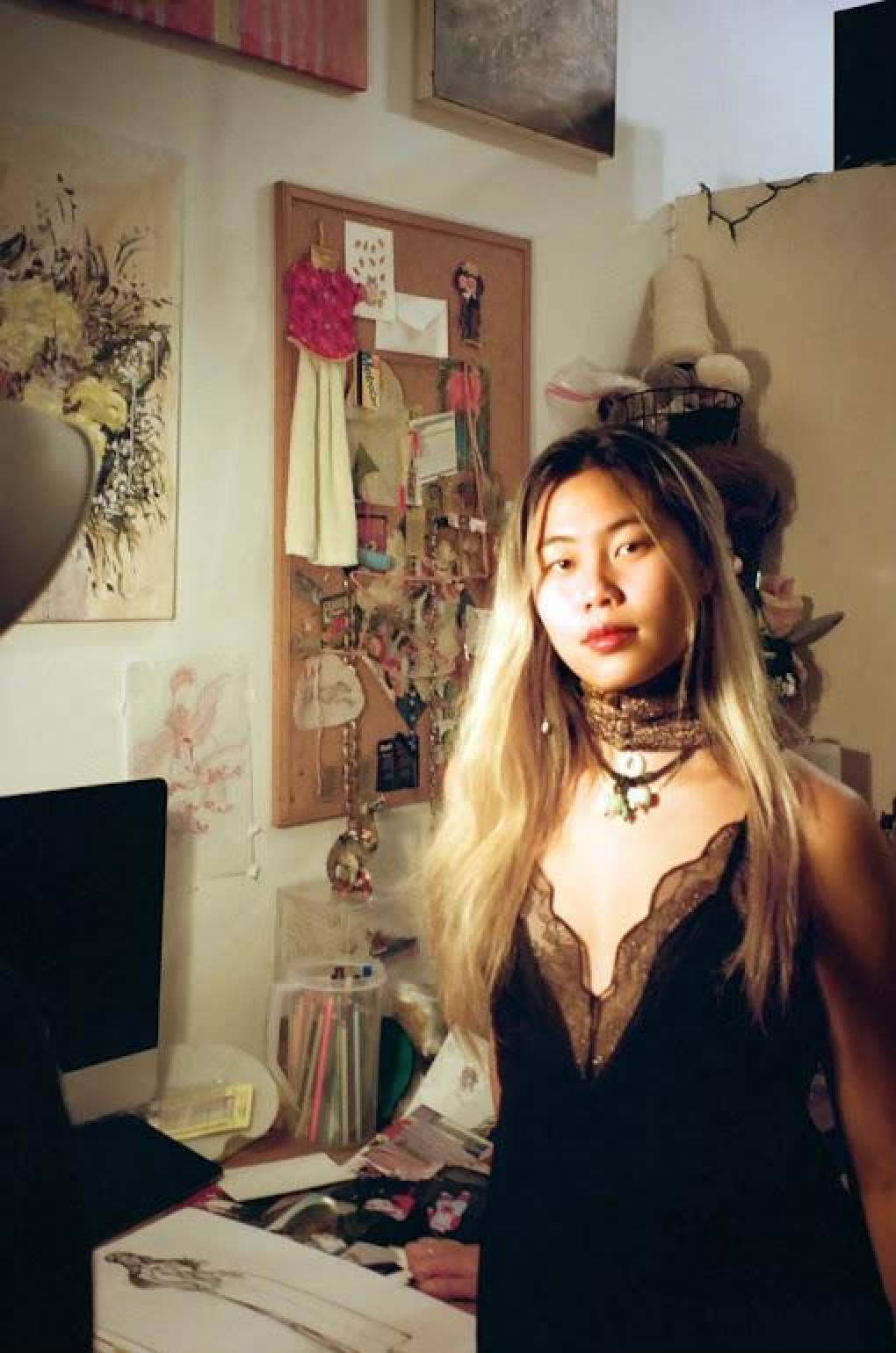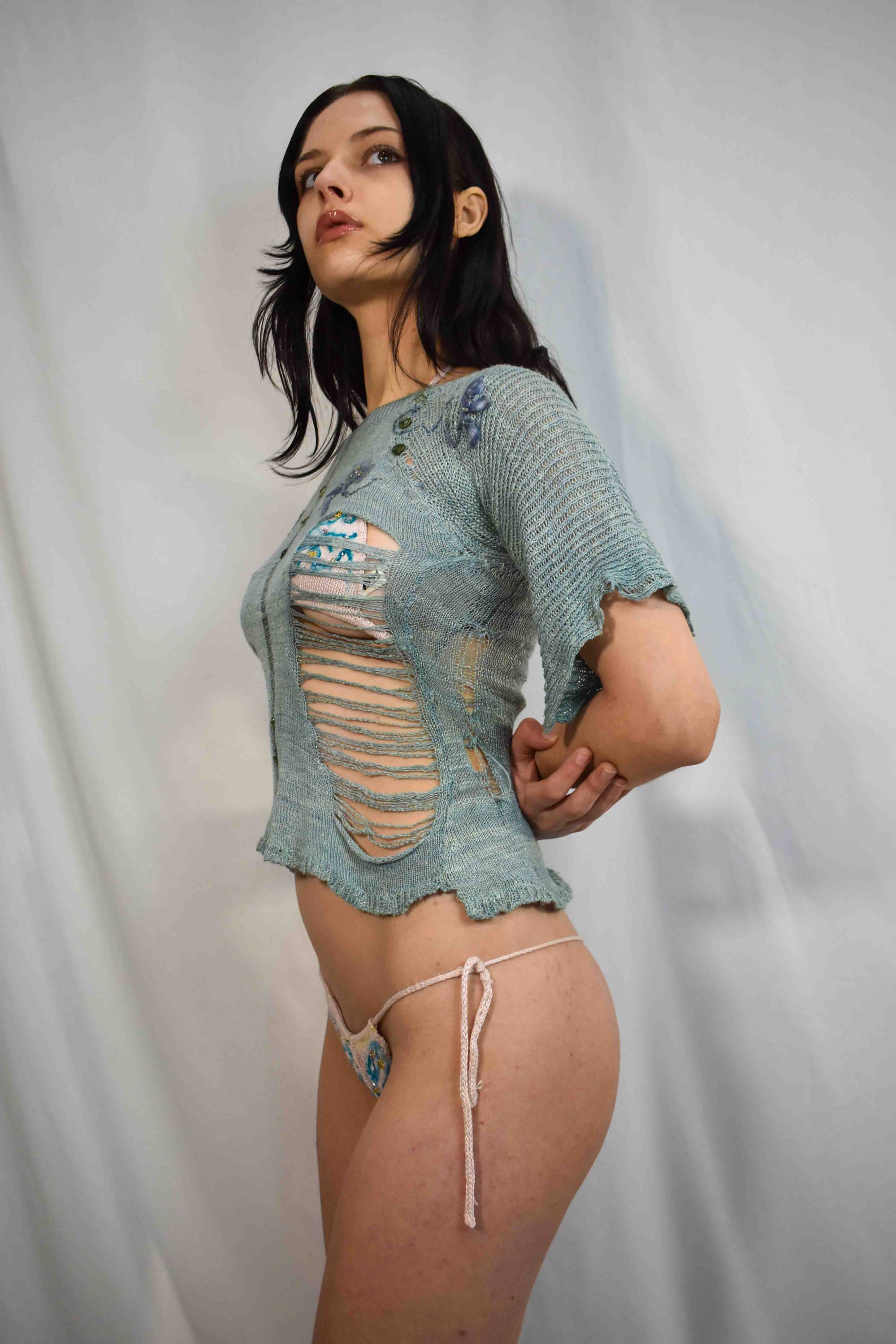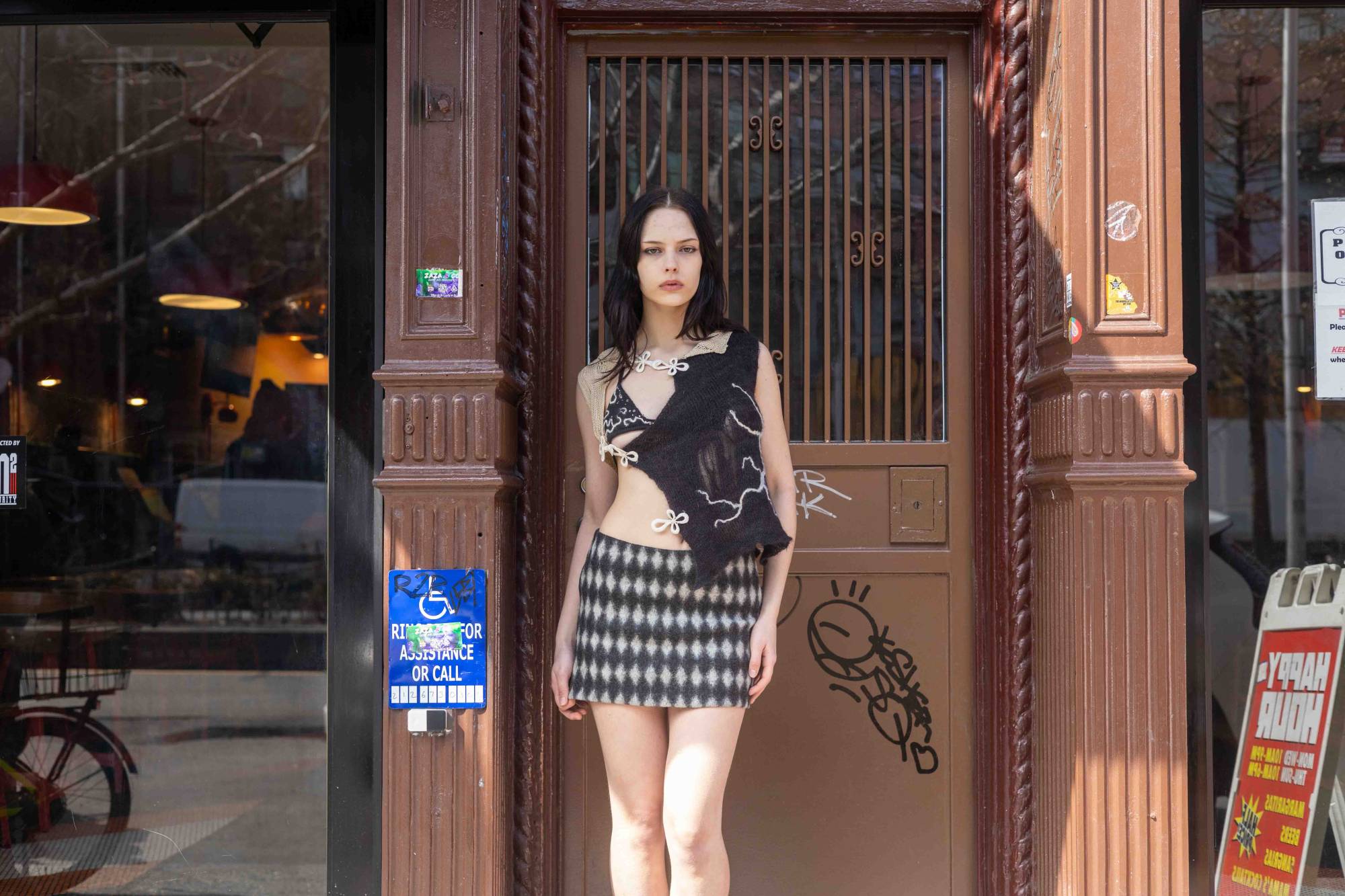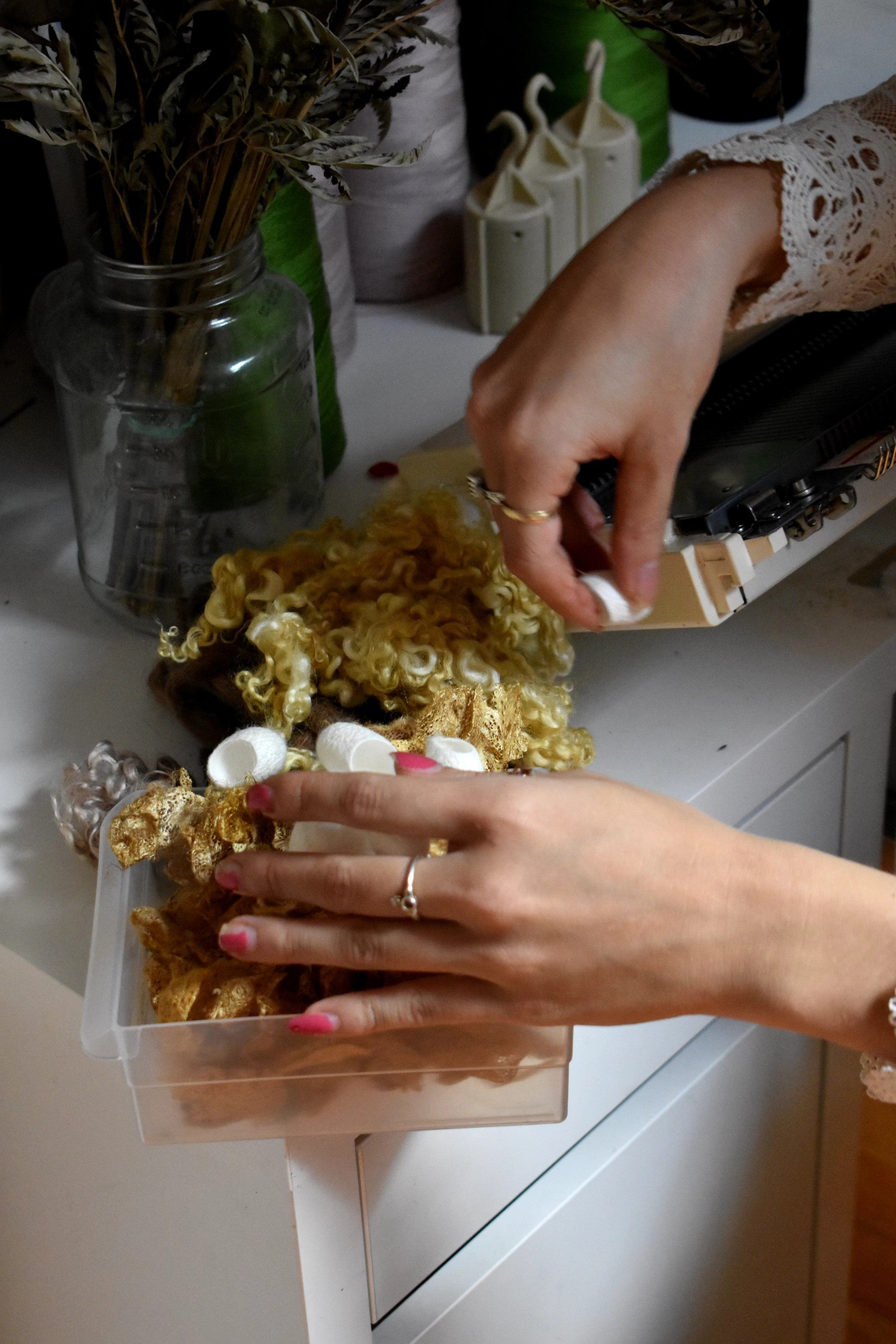
Profile | Asian heritage, US influences: founder of Grace Gui fashion label has learned how to blend the two in her knitwear
- Emerging fashion designer Grace Wang Guixin, who grew up in the US, has reconnected with her Chinese roots, as seen in her label’s take on knitwear
- She talks to the Post about breaking away from the ‘model minority’ stereotype, rejecting, then embracing, her heritage and working with female farmers
After a year of studying French and Arabic at the University of St Andrews in Scotland, Grace Wang Guixin returned to the United States to begin again at the Fashion Institute of Technology in New York.
Wang was born and raised in New Jersey. Her Wuhan-born mother and her Shanghai-born father met when they were both studying at the New Jersey Institute of Technology.

“We would go back to Shanghai every year, which is where I get a lot of my [East] Asian influences,” Wang reveals. “We don’t speak English at home; we mostly speak Mandarin, which has been a great thing for me, as I grew up in a very American system and went to a school with maybe 12 kids of colour.”
Wang’s is an origin story that is equal parts Chinese and American. She was made fun of for being different from her peers, from her dumpling school lunches to attending Chinese school on Saturdays instead of church on Sundays.

Because of this, Wang rejected her heritage for years. She dyed her hair blonde and told her parents that she did not want to speak Mandarin in public.
Then Wang went to Scotland to study in a setting that was, in her words, “even whiter” than New Jersey. For the first time in her life, she did not have access to her Chinese heritage, which she began to miss.

Wang tells the Post: “My grandma and I would pick mulberry leaves together and bring them back to raise the 500 silkworms in our kitchen. I loved that experience.”
“What if I applied to design schools? It just seemed like it was calling me. I took those two weeks and sent my applications everywhere,” she recalls.

Although Wang, now at New York’s Fashion Institute of Technology, feels like she is finally on the right track in pursuing her true passion, her father was initially “adamantly not having it at all”.
Today, Wang and her father are back on good terms. “With a lot of Asian parents, you have to prove yourself, and I think I’ve proved myself enough since then that we’re much closer,” she says.

Wang’s stint in Scotland has brought her back to her ethnic and cultural heritage in more ways than one.
The designer references her childhood memories through Grace Gui and she grows silkworms in her New York studio. One day, when she was tending to her silkworms, she had the idea of using their cocoons to create something akin to the paintings that she used to watch her grandfather do on paper fans.
Wang boiled silkworm-free cocoons before pulling their fibres apart with chopsticks to visually mimic flower petals. She then embroidered them in a way that evokes Chinese ink paintings – the inspiration behind Grace Gui’s aesthetic.

As well as her Chinese roots, the brand touches on Wang’s upbringing in New Jersey, where farmland teems with livestock. It is where she sources most of her textiles – more specifically, from local female farmers.
This is because of the support Wang has received from women over the years. Now that she has her own business, she wants to support farmers she admires and looks up to.
“I try to develop a relationship with the [supplier] and really get to know them [and their practice] before sourcing.” She adds: “I think there’s a way to work with animals that can be completely non-harmful to them, and I want to highlight the love between a female farmer and an animal.”

On April 1, Grace Gui launched a swimwear collection made from 100 per cent mulberry silk, which is loomed in Los Angeles and detailed in New York. Each piece takes inspiration from a different stage of girlhood.
Wang’s dedication to honouring womanhood in her craft extends beyond the ongoing involvement of women in her community. The name, Grace Gui, is a nod to her mother’s maiden name – she wanted to pay tribute to the first woman in her life by reclaiming a surname that was lost when her parents married.
“There’s a lot of hands in it,” she concludes. “It’s not just me, it’s everyone that I respected growing up and want to bring along with me on this journey.”

